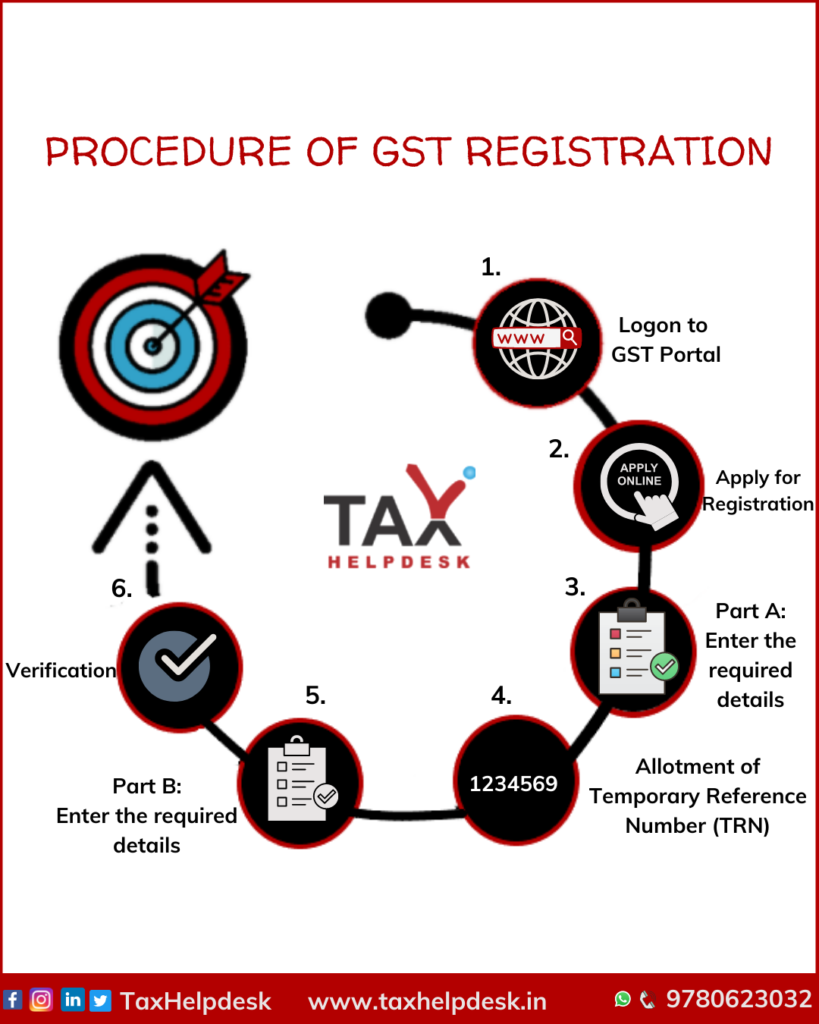Locating Reliable and Efficient Best GST Registration Services in Singapore
Locating Reliable and Efficient Best GST Registration Services in Singapore
Blog Article
From Beginning To End: The Ultimate Roadmap to GST Registration for Companies Looking For Financial Stability
Browsing the intricacies of Product and Services Tax (GST) registration is a critical action for organizations aiming for economic stability. Breaking down the roadmap into convenient actions can improve the registration journey for organizations looking to boost their financial standing.
Comprehending GST Basics
Exploring the fundamental concepts of Item and Solutions Tax (GST) is vital for getting an extensive understanding of its ramifications on businesses and the economy. GST is a value-added tax imposed on a lot of goods and services for residential usage. It has changed multiple indirect tax obligations that existed in the pre-GST period, streamlining the tax framework and boosting simplicity of doing company in India. Under the GST system, both products and solutions are taxed at a details rate, which is identified based upon their classification. If their yearly turnover exceeds the threshold limit set by the federal government, businesses are called for to sign up for GST. Input Tax Credit (ITC) is a substantial function of GST, permitting companies to claim credit rating for tax obligations paid on inputs, decreasing the total tax worry. Comprehending the basics of GST is critical for services to abide by tax obligation policies, manage their financial resources efficiently, and add to the nation's financial growth by getting involved in a transparent tax system.
Qualification Standards for Enrollment
To register for GST, businesses should satisfy certain qualification standards developed by the government. The main eligibility need is that any kind of business associated with the supply of items or solutions with an annual aggregate turnover over the threshold restriction established by the authorities need to register for GST. Since the existing guidelines, the threshold limitation for GST registration is an annual accumulation turn over of 40 lakhs for organizations running within a state, besides special group states where the limitation is 20 lakhs. Furthermore, certain businesses are called for to sign up for GST irrespective of their turnover, such as interstate suppliers, informal taxable individuals, and services responsible to pay tax under the reverse charge system. It is critical for organizations to completely evaluate their turn over and deal types to establish their GST registration obligations precisely. Failing to register for GST when eligible can lead to fines and legal effects, making it necessary for companies to follow the specified qualification criteria.
Records Needed for Registration
Having met the eligibility standards for GST enrollment, companies need to now guarantee they have the requisite papers in place to continue with the registration procedure effectively. The documents needed for GST registration generally consist of proof of business constitution, such as partnership act, enrollment certification, or unification certificate for various kinds of services. Additionally, services need to supply documents establishing the principal place of organization, such as a rental contract or power expense.
Step-by-Step Enrollment Process
Beginning the GST registration process entails a series of structured actions to ensure a seamless and certified registration for services. The very first step is to go to the GST website and complete the registration form with exact information of business entity. Following this, the candidate receives a Short-lived find more information Reference Number (TRN) which is utilized to return to the application procedure if it's not completed in one go.
Next, all called for files according to the list given by the GST portal need to be uploaded. These files typically include proof of company address, identity and registration proofs of promoters, monetary statements, and company entity's frying pan card.

Post-Registration Compliance Guidelines

Final Thought
Finally, services looking for economic security needs to comprehend the fundamentals of GST, meet eligibility standards, collect needed papers, comply with the step-by-step enrollment procedure, and browse around this site follow post-registration guidelines - Best GST registration services in Singapore. By sticking to these actions, services can make sure conformity with tax obligation guidelines and preserve financial security in the future
Furthermore, specific businesses are called for to register for GST irrespective of their turn over, such as interstate providers, laid-back taxed persons, and organizations responsible to pay tax under the reverse charge device.Having fulfilled the qualification criteria for GST enrollment, services should currently ensure they have the requisite records in place to continue with the registration procedure efficiently. The papers required for GST enrollment commonly include proof of service constitution, such as partnership action, registration certification, or incorporation certificate for various kinds of organizations. Furthermore, businesses require to give records developing the principal location of company, such as a rental contract or electrical energy bill.Starting the GST enrollment process includes a series of structured steps to ensure a certified and smooth registration for services.
Report this page